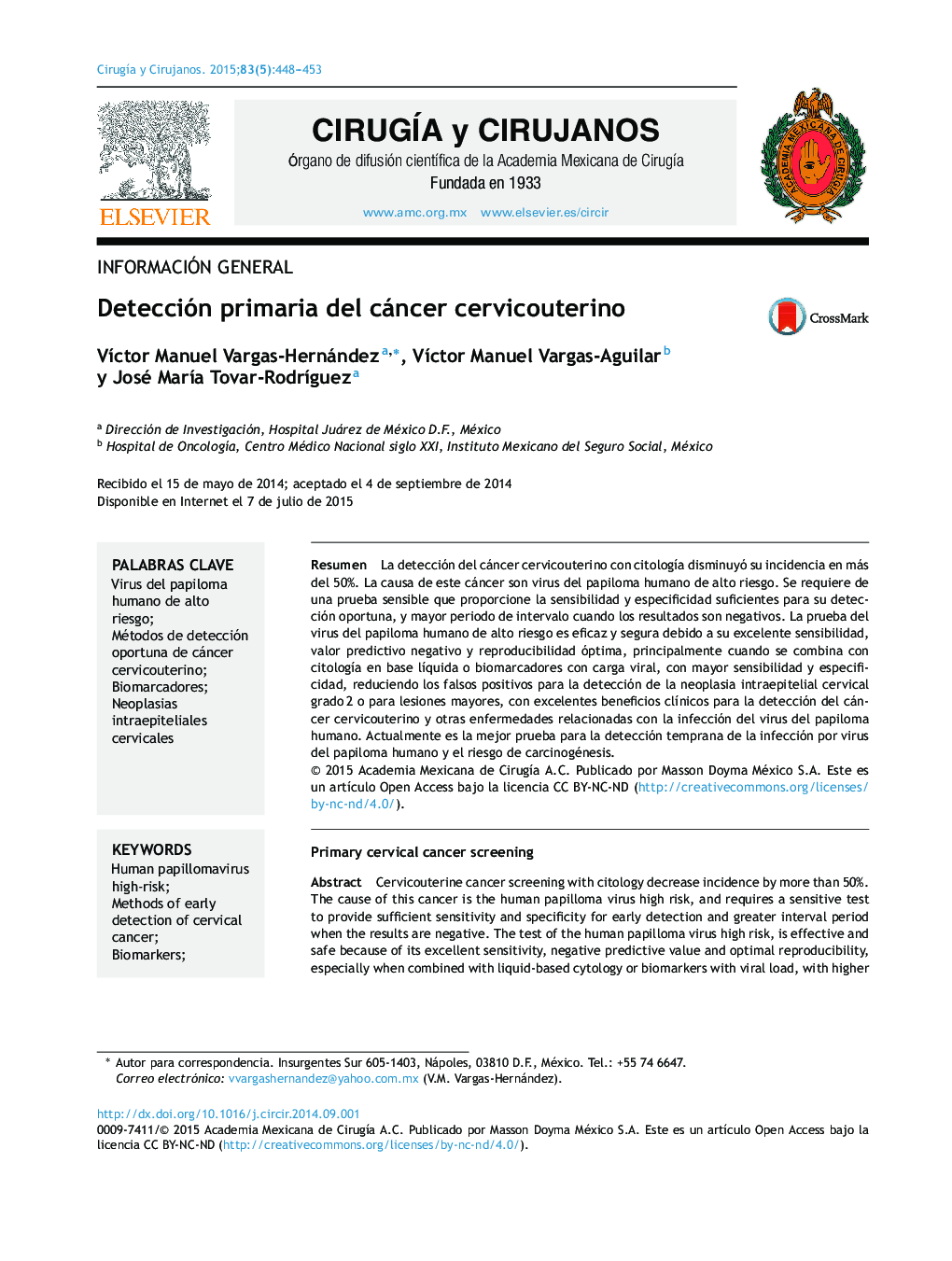| Article ID | Journal | Published Year | Pages | File Type |
|---|---|---|---|---|
| 4283233 | Cirugía y Cirujanos | 2015 | 6 Pages |
ResumenLa detección del cáncer cervicouterino con citología disminuyó su incidencia en más del 50%. La causa de este cáncer son virus del papiloma humano de alto riesgo. Se requiere de una prueba sensible que proporcione la sensibilidad y especificidad suficientes para su detección oportuna, y mayor periodo de intervalo cuando los resultados son negativos. La prueba del virus del papiloma humano de alto riesgo es eficaz y segura debido a su excelente sensibilidad, valor predictivo negativo y reproducibilidad óptima, principalmente cuando se combina con citología en base líquida o biomarcadores con carga viral, con mayor sensibilidad y especificidad, reduciendo los falsos positivos para la detección de la neoplasia intraepitelial cervical grado 2 o para lesiones mayores, con excelentes beneficios clínicos para la detección del cáncer cervicouterino y otras enfermedades relacionadas con la infección del virus del papiloma humano. Actualmente es la mejor prueba para la detección temprana de la infección por virus del papiloma humano y el riesgo de carcinogénesis.
Cervicouterine cancer screening with citology decrease incidence by more than 50%. The cause of this cancer is the human papilloma virus high risk, and requires a sensitive test to provide sufficient sensitivity and specificity for early detection and greater interval period when the results are negative. The test of the human papilloma virus high risk, is effective and safe because of its excellent sensitivity, negative predictive value and optimal reproducibility, especially when combined with liquid-based cytology or biomarkers with viral load, with higher sensitivity and specificity, by reducing false positives for the detection of cervical intraepithelial neoplasia grade 2 or greater injury, with excellent clinical benefits to cervical cancer screening and related infection of human papilloma virus diseases, is currently the best test for early detection infection of human papillomavirus and the risk of carcinogenesis.
